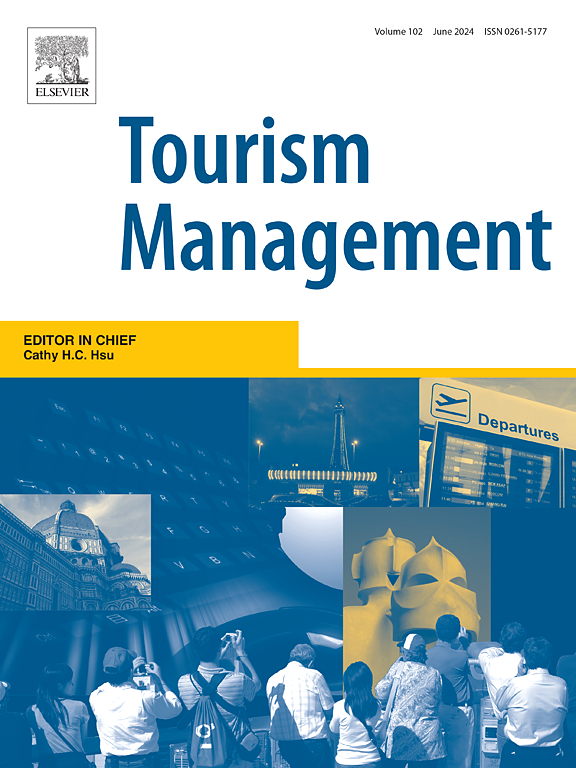客户满意度评分:估算虚假评论数量的新模型
IF 10.9
1区 管理学
Q1 ENVIRONMENTAL STUDIES
引用次数: 0
摘要
在本文中,我们开发了客户满意度评分分布的新模型。这为估算经验数据中的虚假评论数量提供了新方法。本文对基本模型进行了修改,考虑了极端正面和负面评论的倾向,以及评论者可能缺乏参与的情况。此外,还提出了纳入价格和文化效应的进一步工作建议。本文章由计算机程序翻译,如有差异,请以英文原文为准。
Customer satisfaction scores: New models to estimate the number of fake reviews
In this paper we develop new models for the distribution of customer satisfaction scores. This leads to new approaches for estimating the number of fake reviews in empirical data. Modifications of the basic model are presented that account for the propensity of extreme positive and negative reviews, and a potential lack of engagement on the part of reviewers. Further work to incorporate price and cultural effects is proposed.
求助全文
通过发布文献求助,成功后即可免费获取论文全文。
去求助
来源期刊

Tourism Management
Multiple-
CiteScore
24.10
自引率
7.90%
发文量
190
审稿时长
45 days
期刊介绍:
Tourism Management, the preeminent scholarly journal, concentrates on the comprehensive management aspects, encompassing planning and policy, within the realm of travel and tourism. Adopting an interdisciplinary perspective, the journal delves into international, national, and regional tourism, addressing various management challenges. Its content mirrors this integrative approach, featuring primary research articles, progress in tourism research, case studies, research notes, discussions on current issues, and book reviews. Emphasizing scholarly rigor, all published papers are expected to contribute to theoretical and/or methodological advancements while offering specific insights relevant to tourism management and policy.
 求助内容:
求助内容: 应助结果提醒方式:
应助结果提醒方式:


